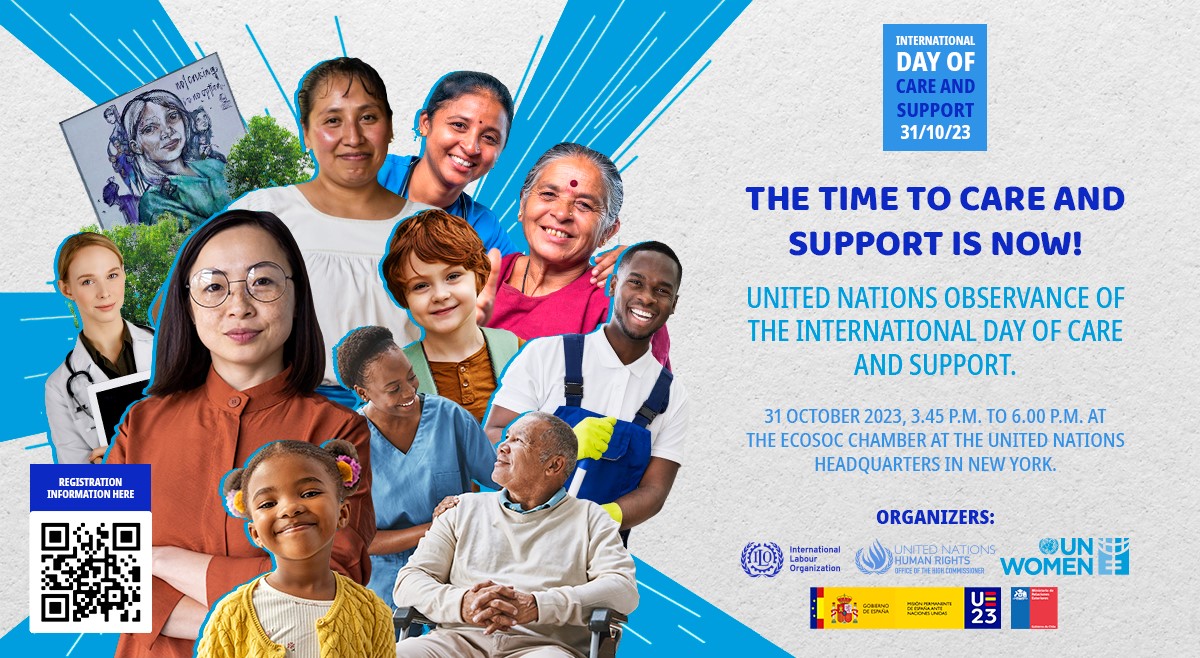
On the first UN International Day of Care and Support, Autism-Europe joins other 16 European organisations to call for urgent measures to address underinvestment and staff shortages in long-term care. The aim is building up a European care capital through sustainable investments.
At the EU level, the European Care Strategy paves the way for the transformation of the sector and the creation of a person-centred, community-based care and support system in line with the United Nations’ Convention on the Rights of People with Disabilities (UNCRPD). It lays the foundation for a system that will respect the rights and dignity of persons in need of support, and their families as well as carers, both professional and informal.
Set on 29th October, the first UN International Day of Care and Support is an initiative that marks a positive development in the recognition of the vital importance of those who provide support in our societies. This welcome momentum will hopefully catalyse and inspire substantive actions across the European Union.
On this first UN International Day of Care and Support, Autism-Europe has signed a statement with other 16 European organisations to call on the European Union fora support system that protects the rights and dignity of all segments of the European population – including the autism community. The undersigned organisations call on all stakeholders to invest in the transition to community-based, person-centred high-quality, affordable and accessible long-term care systems.
According to the 2022 EURES Report on labour shortages and surpluses, there are critical shortages in health and social care occupations across many, if not all, European countries. Everywhere, organisations have been raising the alarm about the shortage of care services, professional care staff, insufficient support to informal carers, and the dangerous and immediate consequences for the entire society.
On the side of persons who draw on care and support services, shortages can result in a denial of human rights with sometimes life-threatening consequences and affect the quality of the care and support services provided. The shortages in adequate services and in staff amounts to a violation of the human rights of persons entitled to support services under the UNCRPD and the EU Charter of Fundamental Rights, and a denial of their dignity, autonomy and rights to social inclusion and participation.
At the EU level, the European Care Strategy paves the way for the transformation of the sector and the creation of a person-centred, community-based care and support system. Support services provisions must be rights-based in line with the UNCRPD. This cannot be achieved without investments in the development of care services enabling human rights of all, professionalisation of care, improving workers’ skills through continuous professional development enhancing the attractiveness of the sector, and reprioritising the value and the contribution of support provision to our economies and societies.
The European Care strategy needs to be fully and adequately transposed to address EU Member States’ realities through ambitious national measures and concrete actions to be submitted to the European Commission by June 2024.